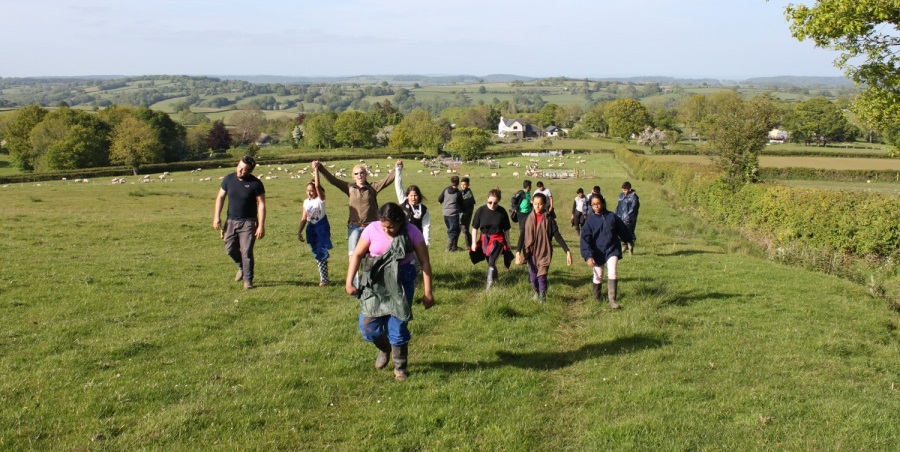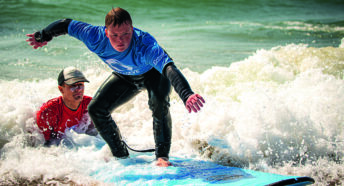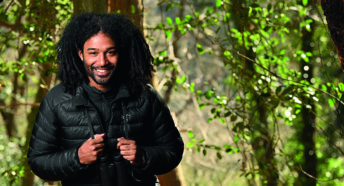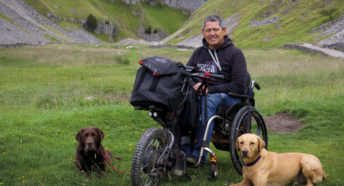Jamie Feilden: changing children’s lives with farm stays
When teacher Jamie Feilden realised his inner-city pupils had never experienced rural life, he decided to organise a trip to his mum’s smallholding in Wiltshire. Since then, he has helped thousands of young people connect with the countryside through Jamie’s Farms.
I grew up in rural Wiltshire, three miles from the nearest shop, and so far from the nearest school that the local authority sent a taxi to pick us up. So living and working in London as an adult certainly came as a shock. While teaching at a comprehensive in Croydon, I realised that the students had never enjoyed the freedom and open spaces that I had taken for granted as a child, and it was affecting their behaviour: they were bouncing off the walls. My mum, who’s a psychotherapist, always said that if I hadn’t had lots of space to run around in as an outlet for my energy as a kid, I would have got myself into all sorts of trouble.
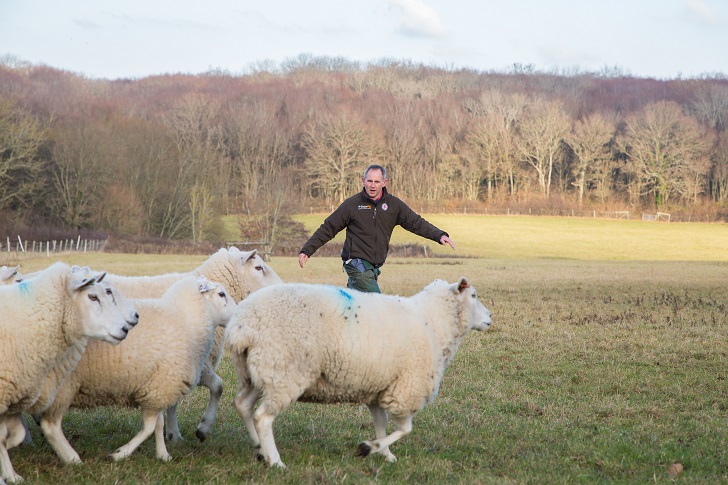
These young people often had turbulent lives: poverty, difficult housing situations, gang culture and a real lack of male role models. With so much other stuff going on outside school, it was hard for them to focus on learning. They lacked opportunities to achieve or feel good about themselves, and we saw a lot of really challenging behaviour in the classroom.
We came up with a plan to take seven kids on a week’s trip to our rural family home. Away from the daily pressures of their urban lives, surrounded by fresh air and rural beauty, there was a real softening of attitude in these kids. The bravado they use as a kind of armour started to disappear, and their teachers reported sustained improvements in their behaviour. We quickly realised that these stays could be life-changing.
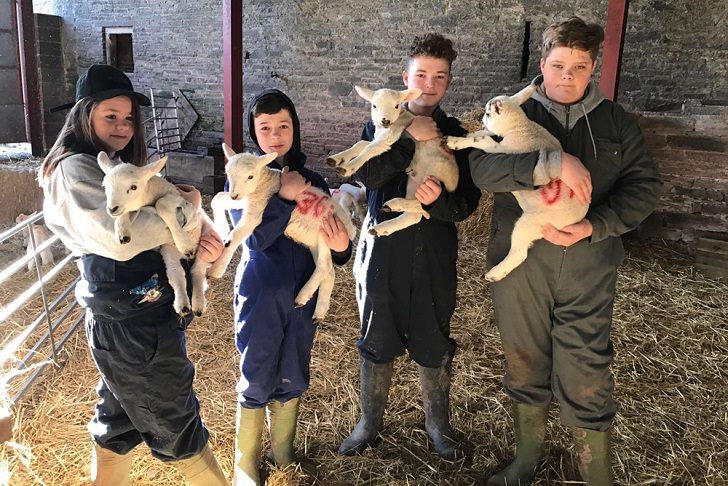
We continued to pilot the idea, and in 2009 we registered as a charity and I started working on Jamie’s Farm full-time. Today, we have five working livestock farms, an amazing team of staff, and close to 2,000 young people staying with us in a normal year, typically those who are struggling with their behaviour, self-esteem or school attendance, and who are at risk of permanent exclusion.
We give them real jobs to do, so they feel respected and needed: if they don’t get out of bed, the animals won’t get fed. We’ve had teenagers delivering lambs within an hour of arriving! As well as caring for livestock, they also get involved in therapy sessions, growing fruit and veg, and going on daily walks. Boredom isn’t an option. We’re always amazed by how much they appreciate it. We’ve had a 16-year-old gang member asking whether he could stop and just enjoy the view for a minute.
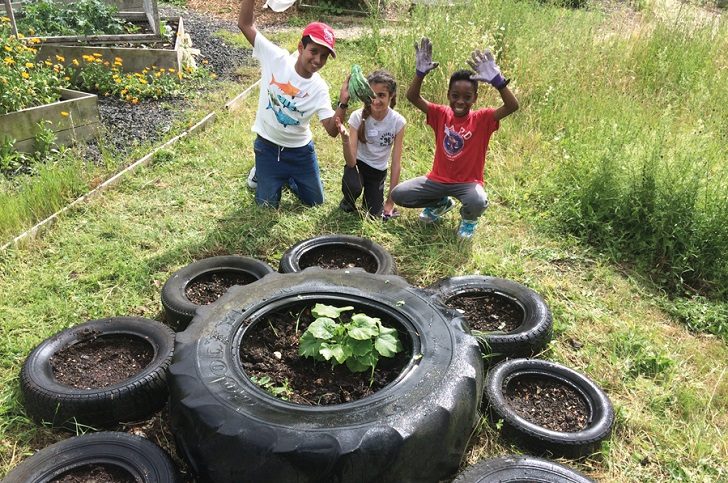
We’ve bought lovely, traditional farms with a beautiful courtyard at the centre of each. In a sense, they’re like farms you’d see in a storybook. Kids walk in and even if they’ve never been to the countryside before, they sort of recognise that; they feel ‘home, sweet home’. Across all five farms, we’re very clear that these are our homes – a lot of the staff live on site – and we expect them to treat it as such, with respect. If it is a family home, not an institution, the kids often take better care of it.
Our data shows that 60% of those who were on the verge of exclusion when they came to us are no longer at risk six months on. Many young people get in touch years later to say what a difference their stay made – whether it encouraged them to go on to university, or they’ve used what they learned around the dinner table here to help them parent their own children. Some develop a desire to live or work in the countryside in the future. This year, we offered our first apprenticeships to two young adults who had been through our programme as teenagers.

Our farms are also a bit of a crash course in where your food comes from. With Brexit, farming is going to go through some significant changes. We have a chance to educate people about healthy, sustainable food, and why they might pay a little more for something produced in better conditions. There is a chance to win the hearts and minds of the general public.
We do a lot of environmental stewardship work on our farms. We’re growing herbal leys – species-rich grassland with lots of clover, chicory and other legumes and herbs. To me, that’s a no-brainer – it’s good for soil, pollinators and cattle, we’re paid extra to plant it, and we’re buying a lot less seeds – but few of our neighbours are doing it. We’re very much an open farm, in the way that most farmers are not, and we feel there’s a job to be done in terms of sharing a hopeful good-news story about the future of farming.
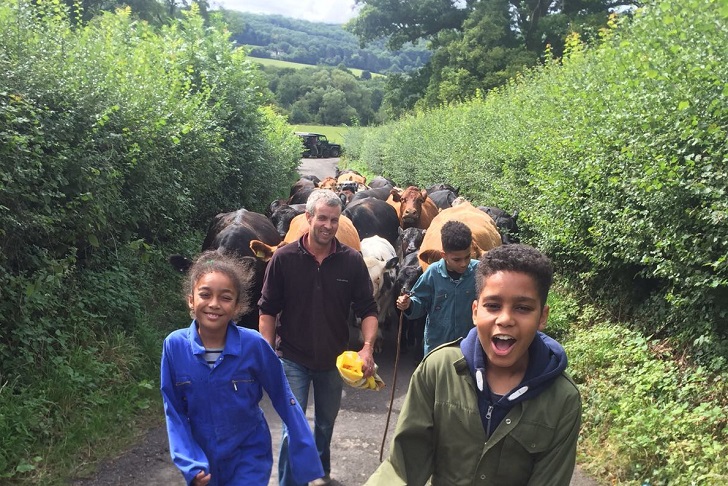
This year, with Covid, we’ve been lucky as a charity to have our own farms. The farming is the part of the business that has actually done well. Here in Bath, particularly, we sell meat to local butchers and farm shops, that have seen a lot more interest and support this year. Coronavirus forced us to pause our programme during the spring, but we have successfully adapted our residential stays for day visits. The real challenge is the uncertainty. There is more of a need than ever for our work, and we’re thankful that we can welcome young people again while schools remain open. Having seen the benefits that young people get from access to the countryside, I’d love to see these opportunities extended to every child.
I think ultimately we have a bright future. We’re looking to head up north next, and we’re in conversations about that. But we realise that we can’t possibly support all the children that we’d ideally like to support, because we’re never going to have a hundred farms. Therefore, we’re really keen to share our approach with other organisations and support others to do more for the kids. In the long run, we’d like to help other farms feel it is safe to welcome young people. I feel that every farm should welcome the general public.
Visit jamiesfarm.org.uk to find out more
A version of this article was originally published in CPRE’s award-winning magazine, Countryside Voices. You’ll have Countryside Voices sent to your door three times a year, as well as access to other benefits including discounts on attraction visits and countryside kit from major high street stores when you join as a CPRE member. Join us now.
